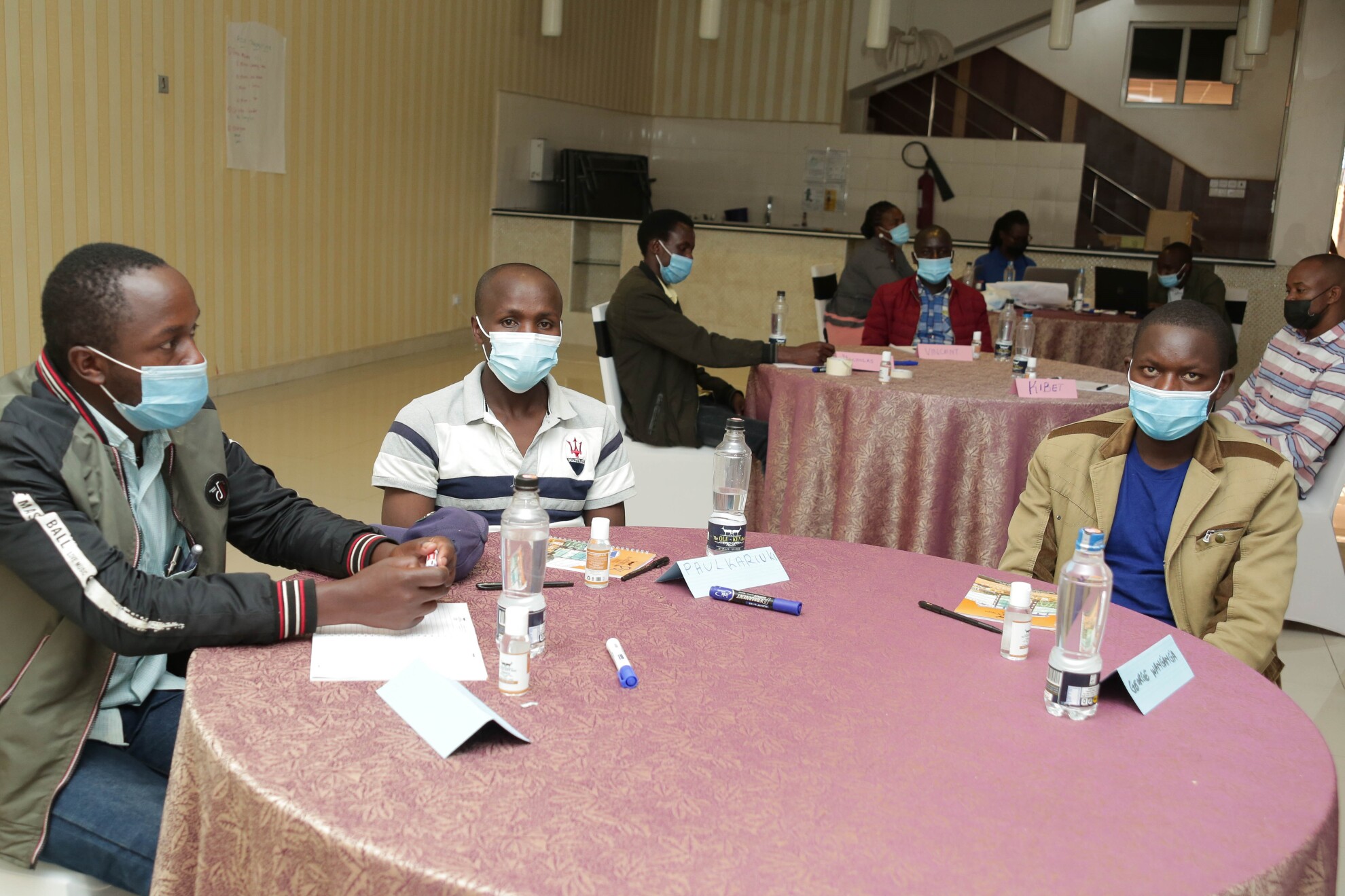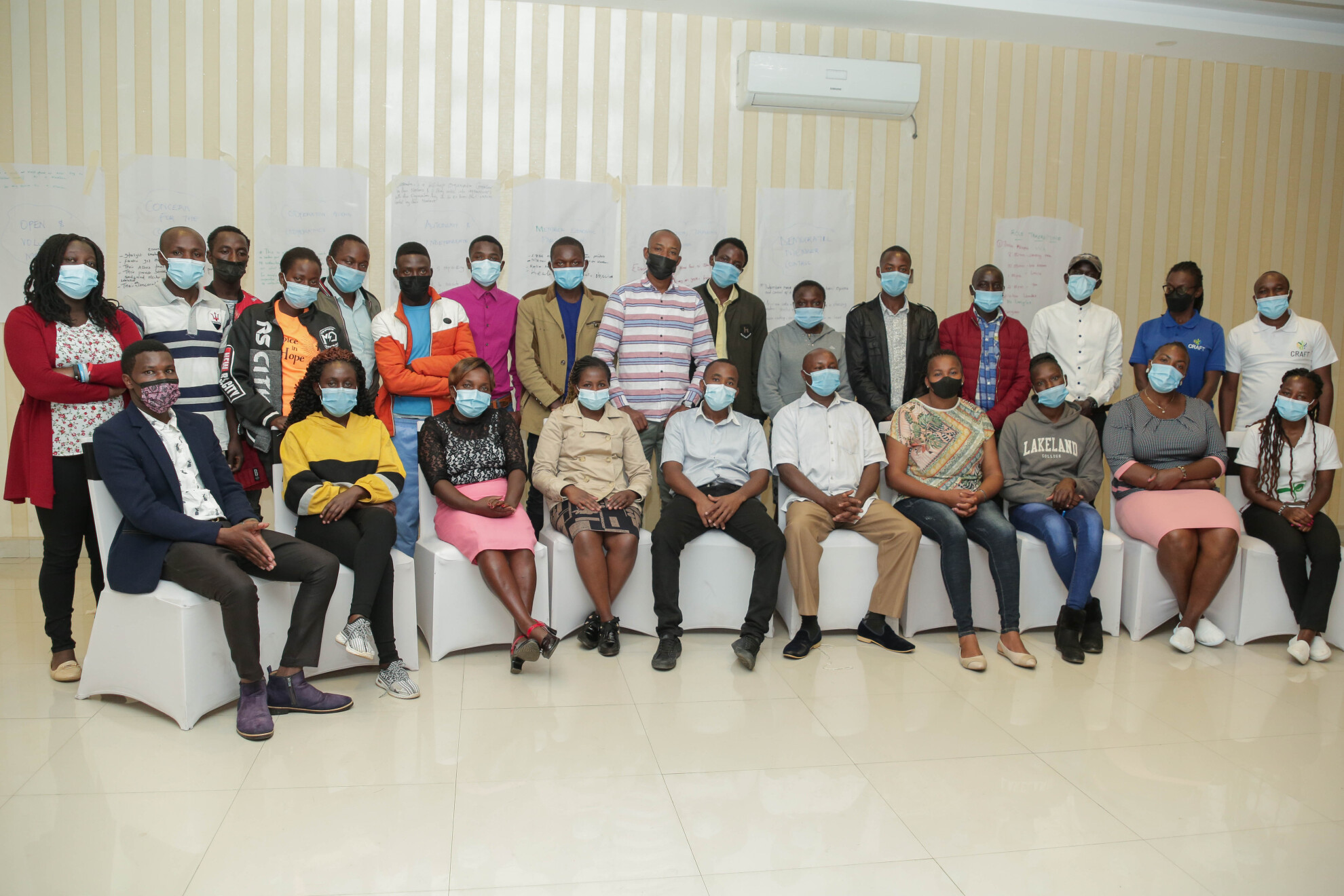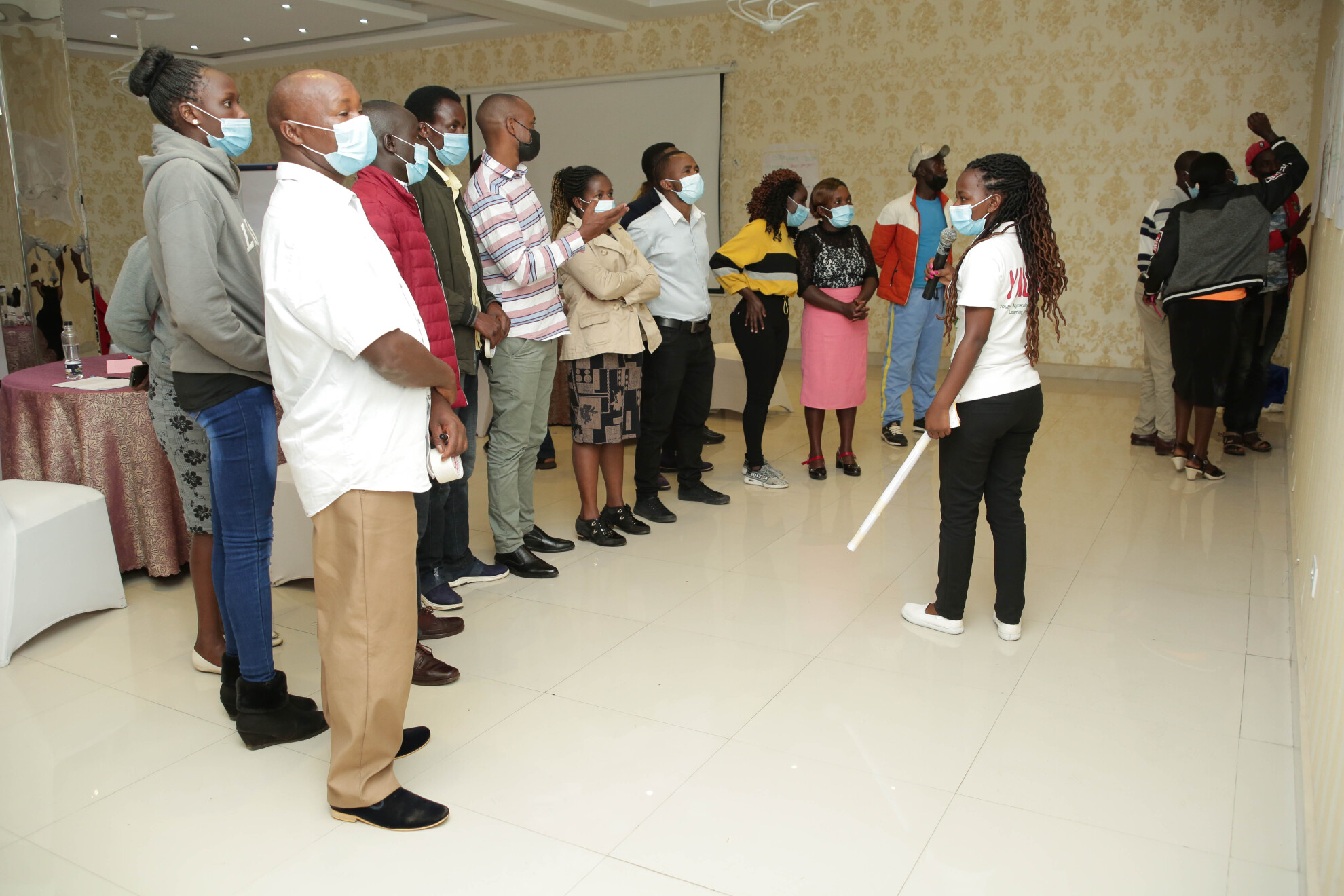Youth action in climate
08-11-2021Written by Emmanuel Kibet, business advisor Kenya
“Climate change is real. It is happening right now; it is the most urgent threat facing our entire species, and we need to work collectively together and stop procrastinating.”
Leonardo Di Caprio, actor & environmentalist
In one of our monthly country CRAFT team meetings in September, we floated an idea to blend the Agriterra Youth-Kick off workshop with the climate workshop from SNV to bring out a blended product addressing the role of youths in combating climate change at the cooperatives level.
The idea was warmly embraced, and we were given the go-ahead to take the lead in organising the blended Youth-Kick-off workshop as a pilot with Starlight Cooperative. Starlight is an outstanding cooperative in the CRAFT project across the 3 countries. They have excelled in adopting Climate Smart Agriculture (CSA) practices and scaling up their potato seed production business.
To give some context about the cooperative: Starlight Cooperative Society is a multi-purpose cooperative in Kenya currently being supported under the CRAFT project. Their core business is seed potato multiplication and marketing. Starlight is one of the outstanding Climate-Clever Cooperative business cases in the CRAFT project, having embraced CSA technologies and innovations that resulted in the scale up of their seed production from 4 acres in the previous season to 29 acres in the just-ended season with a record yield of 350MT (average of 12 tons/acre).

Role of youth councils in climate action within cooperatives
Young people from around the world have mobilised to demand greater action from leaders. Youth use their voices to address today’s largest challenge -climate change- and demand transformational change through collective action. Young people possess passion and ambition, but they offer diverse perspectives to drive solutions and lead the paradigm shift necessary to tackle climate change. To pave a path towards a sustainable future in cooperatives, it takes all-around collaboration and innovation across all key stakeholders within the cooperatives, including youth.
A notably key highlight from the workshop was carving a niche for the youths in service provision within the cooperative. Some key takeaways from the action points developed were the key roles that youths can play in promoting CSA activities and their open-mindedness.
An eye-opening insight for me was how the youths are adept and are already spreading new habits and technologies and are well placed to contribute to the fight against climate change within the cooperatives system. Some of the examples cited by Starlight Cooperative youths are:
- Provision of spraying services using motorised sprayers that increase efficiency and effectiveness and creation of employment opportunities for the youths
- Youths playing the role of agents for soil testing services earning them commissions from soil testing companies
- Youths providing transport services to the cooperative using motorbikes in light of poor road networks ensuring no produce is lost through post-harvest losses
- Specialisation in production of new processing varieties of potatoes that are in high demand by processors.
- Their role in extension through the Training of Trainers models that enables them to earn money from training fellow farmers whilst increasing production and quality of produce

The youth are adaptable and can quickly adopt innovative CSA practices, technologies, and choices as part of their daily lives. Youth should therefore be given a chance to take an active part in the decision-making within cooperatives.
The blended workshop was a great success and propositions are being made for it to be replicated across all the cooperatives onboarded in the CRAFT project in Kenya, with a possibility of some climate-smart ideas flouted by the youths getting some financial support from the project.

